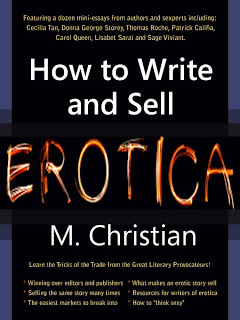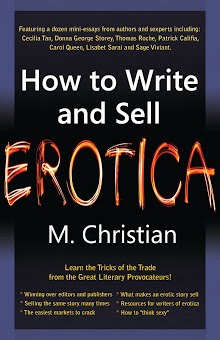The Only Winner…
So … contests. In a word: don’t!
(sigh) What IS it with you people? Can’t you just accept the word of an internationally renowned literary authority and acclaimed sex symbol?
Yes, I mean ME. Who else do you think I’m talking about?
Okay … okay … I GUESS I’m going to have to spell it out for you (sigh again). So here goes:
I’ve been seeing a lot of these things lately: send in your stories for this or that competition, and the winner gets published and (sometimes) a bit of cash. The worst of them – and clearly the ones to completely, totally avoid – are the ones that require a fee to enter.
But even the contests that don’t make you pay to play are bad for writers (which means all of you) and bad for writing, in general. Sure, entering a contest might, at first, sound like a good idea: you get to say you won this or that competition, giving you a chance to put a blue ribbon on your resume or in your bio.
But let’s think it through. Writing is hard. Getting a single story published in a magazine, on a Web site, or in an anthology is difficult. Do you need the added pressure of trumping dozens if not hundreds of other writers for a little recognition of (in most cases) dubious authenticity? The odds are not only ridiculously against you, but the rewards are questionable.
It gets worse. Say I’m doing an antho on … oh, I don’t know, sex-on-a-train stories. To get in, you have to submit a well-written story related to that topic. Rarely, if ever, are contests that specific. Most of them are so ambiguous you’ll have absolutely no idea what they are looking for, let alone who actually might be making the final decision and what kind of storytelling they might favor.
Again, think of the odds. As a writer, time is money. Do you seriously want to waste the time it takes to write – or even submit – a story to a contest versus writing something that may, actually, have a chance of getting accepted and published?
Okay, a lot of folks don’t write something new for a contest; most will simply pull something out of their files. But even then, I still think entering a contest is a bad idea. A very bad idea.
Why? Call it part of a personal crusade. Writers always seem to get the short end of the stick – and what’s even worse, we seem to be happy with that short stick, accepting it as our professional lot in life. We get paid very little for a lot of work, far too often have to deal with unqualified editors and publishers, and have to keep going against catty reviews and miniscule pay. Now, a lot of these things won’t be fixed by staying away from contests but think of it this way: are you respecting yourself by entering the shark tank that’s a competition?
Besides, these days even winning a competition means pretty much zilch. There are so many of them, and so many that are practically worthless, that even being able to hang that blue ribbon on your career means virtually nothing. As an editor, I can’t tell you the number of times that a story has been submitted that is … well, in need of a lot of work. But the author has won an award. It’s getting to the point where awards mean that the winner was either the best of half a dozen runner-ups or got themselves a ribbon because their circle or community knew them and not the other entrants.
But the bottom line is that contests really serve one – and only one – purpose, and it’s not to help writers. Competitions are a cheap way to get a person, a Web site, or a magazine a grand dollop of promotion and publicity without having to pay a dime to anyone but the winner. It’s viral marketing under the guise of literary acclaim. Meanwhile, the contest sponsors get all kinds of content that they didn’t have to pay for but from which they will find a way to profit.
You are a writer. That’s a very special thing. Yes, you have to deal with the realities of what that means but there’s no reason why you have to enable people who are only trying to take advantage of your determination and passion. So the next time an invite for a contest drops into you’re in box earn yourself a blue ribbon by doing what’s good for you, as a writer: hit DELETE.










